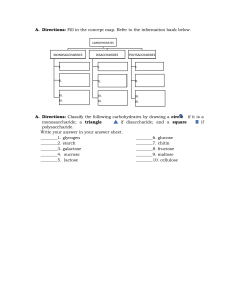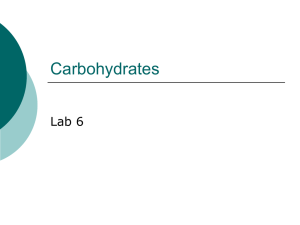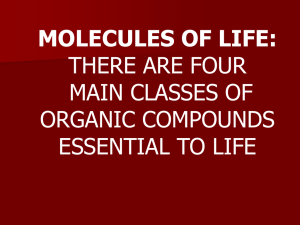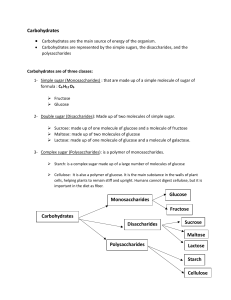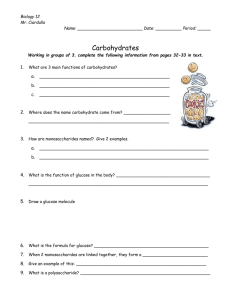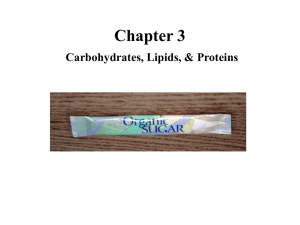Nutrition and Energy Production: Digestion & Absorption
advertisement
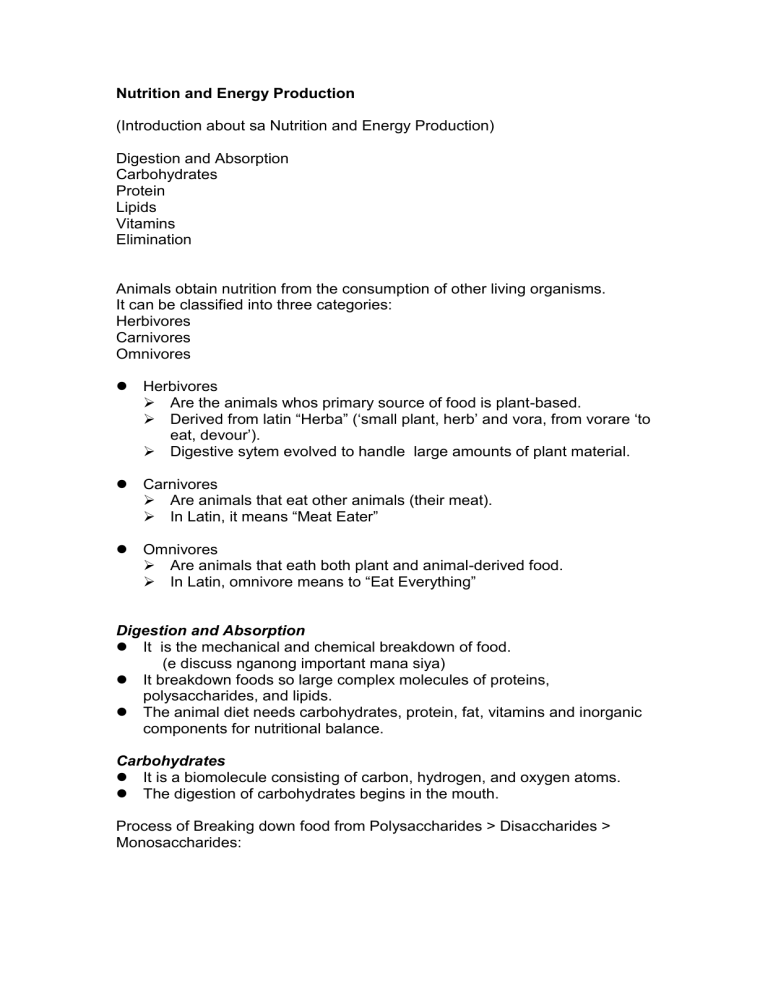
Nutrition and Energy Production (Introduction about sa Nutrition and Energy Production) Digestion and Absorption Carbohydrates Protein Lipids Vitamins Elimination Animals obtain nutrition from the consumption of other living organisms. It can be classified into three categories: Herbivores Carnivores Omnivores Herbivores Are the animals whos primary source of food is plant-based. Derived from latin “Herba” (‘small plant, herb’ and vora, from vorare ‘to eat, devour’). Digestive sytem evolved to handle large amounts of plant material. Carnivores Are animals that eat other animals (their meat). In Latin, it means “Meat Eater” Omnivores Are animals that eath both plant and animal-derived food. In Latin, omnivore means to “Eat Everything” Digestion and Absorption It is the mechanical and chemical breakdown of food. (e discuss nganong important mana siya) It breakdown foods so large complex molecules of proteins, polysaccharides, and lipids. The animal diet needs carbohydrates, protein, fat, vitamins and inorganic components for nutritional balance. Carbohydrates It is a biomolecule consisting of carbon, hydrogen, and oxygen atoms. The digestion of carbohydrates begins in the mouth. Process of Breaking down food from Polysaccharides > Disaccharides > Monosaccharides: Starch Glycogen Polysaccharides Sucrose Maltose Disaccharides Glucose Lactase Sucrase Maltase Monosaccharides Lactose Glucose + Fuctose Glucose + Galactose Digestion of Carbohydrates Site of Action Substrate Acting On End Products Salivary glands Mouth Polysaccharides (Starch) Disaccharides (maltose), Oligosaccharides Pancreatic Amylase Pancreas Small Intestine Polysaccharides (Starch) Disaccharides (Maltose), Monosaccharides Oligosaccharides Lining of the intestine; Brush border membrane Disaccharides Monosaccharides (e.g., glucose, fructose, galactose) Enzyme Produced By Salivary Amylase Small Intestine Protein Large part of protein digestion takes place in the stomach.
